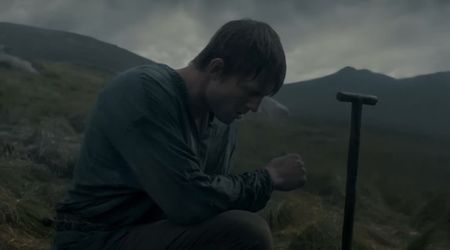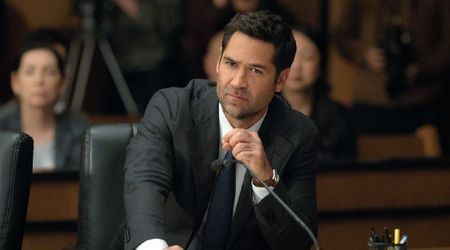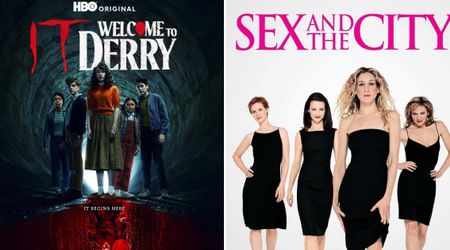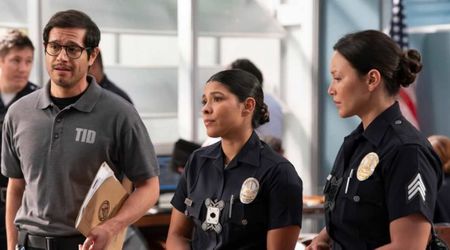HBO's 'Watchmen' shows that trauma can't, and perhaps shouldn't, be something one moves on from
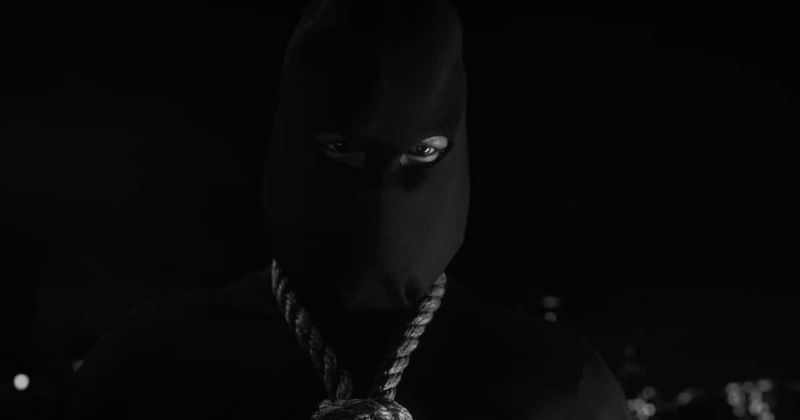
Angela Abar (Regina King) is still dealing with the aftereffects of Nostalgia. There are two sides to this — one is a chemical one that’s beyond the help of anyone but Lady Trieu (Hong Chau), a recollection infestation. The other thing she has to deal with is a whole lot of trauma from the life of her grandfather. ‘Watchmen’ as a series opened up on a traumatic moment, and trauma is a theme that lies at the heart of the series.
‘Watchmen’ is a show that can’t escape it’s past. Whether it’s the more meta comparison to its source material of the comics, or the way its world has changed since the Dimensional Incursion Event (D.I.E.), the Tulsa massacre or even more recently — but still much before the events of the series — the White Night, which saw the Seventh Kavalry murder police officers in their beds. Lady Trieu’s cloned mother suffers from traumatic memories she hasn’t even experienced the Vietnam War.
There are those, like Lady Trieu in the latest episode, who advocate moving beyond it, leaving the past behind. Others, like Dale Petey (Dustin Ingram), are personally removed from it all while endlessly diving into examinations of it, picking it apart from every angle they can. You have members of the Seventh Kavalry, who somehow believe that it’s all about themselves, that the world has done them wrong and they are entitled to restitution. And then you have those like Angela Abar and her grandfather before her, who internalize it and use it to fuel their fight against injustice.
A traumatic incident is a long-standing tradition for superhero origins, and despite its many examinations of important real-world issues, ‘Watchmen’ has always been an examination of superhero myths as well. The traumatic incident is what makes a hero — as it’s commonly said, being bit by a spider is how Peter Parker got his powers, but the death of Uncle Ben is Spider-Man’s origin story. It’s trauma that breaks a worldview so hard that heroes realize the only way to save the world is through unconventional means.
Heroes fold their trauma into masks, and costumes, build an identity around it. Around that identity comes a mission, and as they dedicate their lives to that mission, their trauma comes to define them. Nowhere in the ‘Watchmen’ universe has anyone completely dealt with and moved past their traumas — and ‘Watchmen’ seems to either be making the argument that trauma can’t be moved past — or that it shouldn’t be.
Consider reparations for the Tulsa massacre, that in this world have happened (albeit in a limited way). President Robert Redford’s administration acknowledges the past, and in doing so, makes it an ugly, integral part of America’s history. Backlash from that decision is fuel to the Seventh Kavalry’s fire, but it’s a step towards making things right.
On the other hand, you have Lady Trieu, who is of the opinion that holding on to the past, to people’s most painful memories, has been holding back progress. You only have to look at the example of Looking Glass (Tim Blake Nelson) to see the merits of her argument. A survivor of D.I.E., Looking Glass’ paranoia has lasted for decades and has left him unable to form close connections with people, even though he’s obviously trying to get past that trauma with support groups. The past is most definitely holding him back — but does he really have a choice? If leaving the past behind is the only way forward, how does one even do it?
Not even a complete memory wipe can keep someone safe from the sins of the past, it would seem. Cal Abar (Yahya Abdul-Mateen II) is revealed to be a memory-wiped Doctor Manhattan, attempting to live a life as a mortal. The past won’t let him go, either — with the Seventh Kavalry attempting to take his power for their own, Angela is forced to kill Cal to bring Doctor Manhattan back.
For superheroes, the only way to truly deal with the past is to wear it on their sleeves — or capes, for that matter. To proudly own up to the past’s ugliness, wear it like a crest, and make it their life’s mission to wrong a right that can never truly be fixed. Their mission is eternal, as the past can’t be fixed, but trying is what makes them superheroes in the first place. The first superhero in the world of ‘Watchmen’ was born from trauma, and the Hooded Justice wore the mark of his lynching for everyone to see. His granddaughter now shares that mission, and as ‘Watchmen’ illustrates, now that it’s on her shoulders, it’s not coming off.

